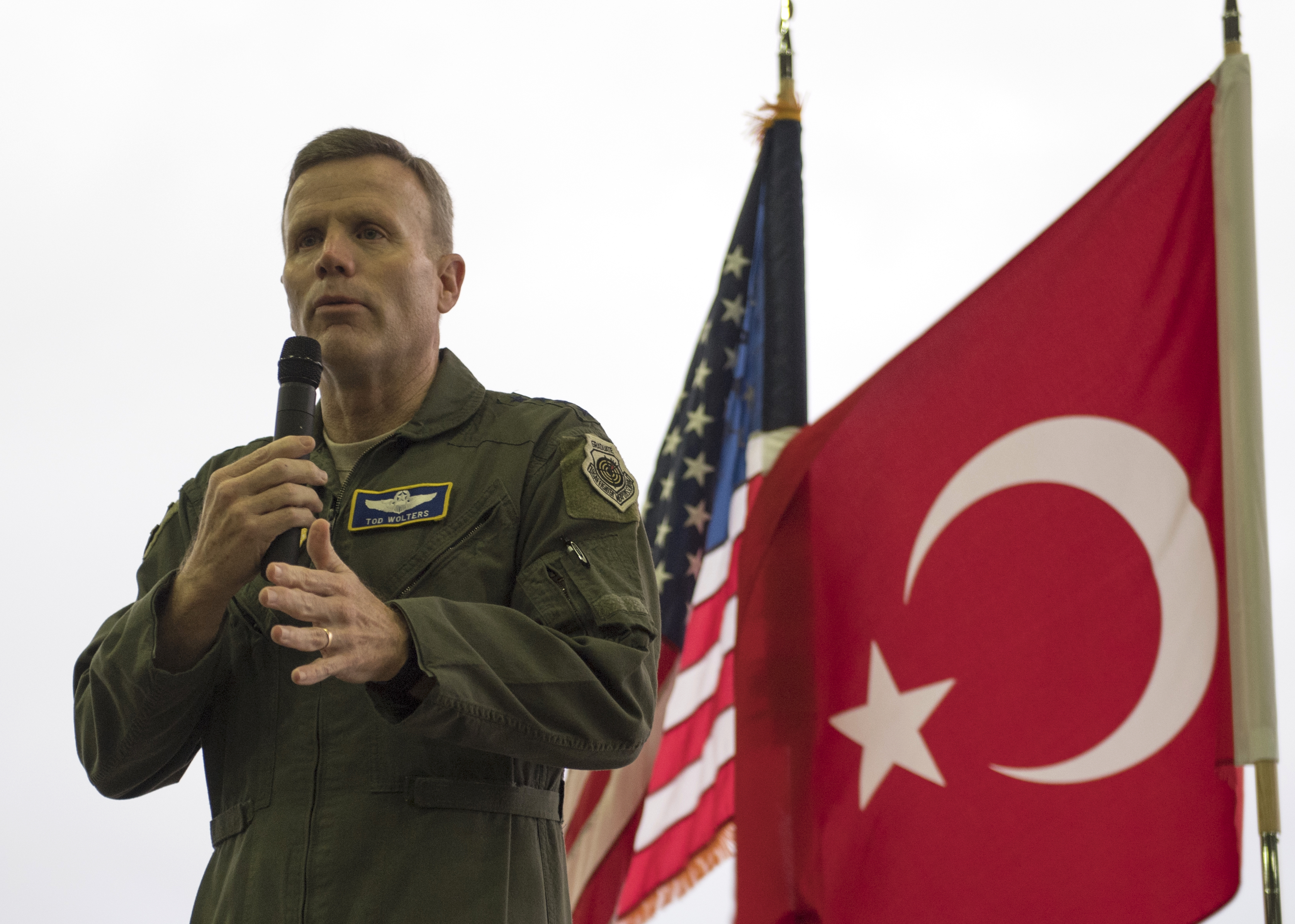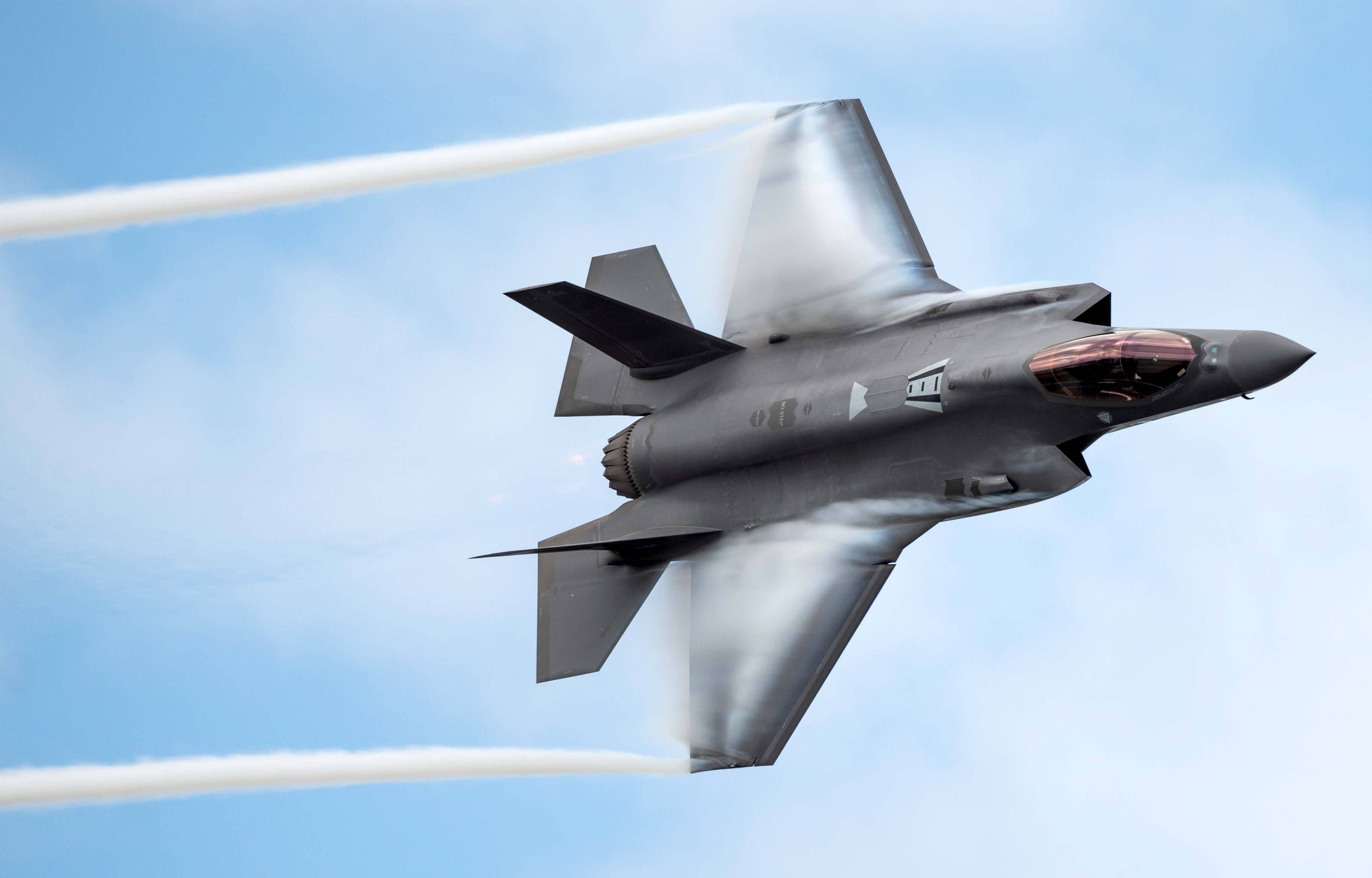
Turkey’s intention to buy a sophisticated Russian air defense system is “not compatible” with its purchasing 100 F-35 Strike Lightning II or manufacturing components for the fifth-generation fighter, the general nominated to be the top American officer in Europe testified Tuesday.
Gen. Tod Wolters, now serving as the senior Air Force officer in Europe, told the Senate Armed Services Committee that he backed steps taken to end Turkish pilot training on the F-35 at Luke Air Force Base, Ariz., and to hold up or cancel the sale of the fighters to Ankara.
Turkey having a Russian air defense system and the American- designed aircraft was “absolutely unsustainable” as options, Wolters said.
Proprietary and classified information concerning the aircraft would be exposed to Russian espionage and the two systems are not be interoperable
“It speaks a different language than English,” Wolters said, explaining the rationale behind his recommendation and the administration’s moves.
Wolters added the current U.S. European Command commander, Army Gen. Curtis Scaparrotti, “probably spends 65 percent of his time on Turkey” dealing with concerns about the air defense sale; their role in the Syrian civil war working with Russia, Iran and the regime of Bashar al-Assad; and their description of the Kurds fighting in the American-supported Syrian Democratic Front as terrorists.
Wolters said he planned to “continue along the same glide path” as his predecessor to ensure good relations with an important ally in the Middle East.
Ankara’s apparent decision to go ahead with the buy, after turning down an offer to purchase the NATO-standard Patriot PAC III air defense system, “is not an action one would expect from an ally,” Sen. Roger Wicker, (R-Miss.), said. “It is troubling and calls into question our long-time ally in Turkey.”
Like Scaparrotti, Wolters asked for permanently stationing more U.S. warships in theater.
“I need a fleet to cover more time, cover more distance,” he said. Adding two destroyers to be permanently stationed in the command would be a big help in meeting that requirement. Such a move would help restore the alliance’s edge in deterrence.
Noting the increased Russian build-up of its land and maritime forces in the Arctic, Wolters plans to work with the head of U.S. Northern Command to expand large-scale training exercises such as Trident Juncture to better prepare NATO forces for operations in the far north.

As to whether such large-scale exercises could be misunderstood by the Russians, Wolters said, “escalation management is something we take very seriously.” But as matters stand now, contact with the Russians before one of these exercises begins is done “only for safety de-confliction.”
Wolters is leaning toward increasing the size of the rotational forces coming into Poland as a deterrent to Russia through the European Reassurance Initiative, rather than permanently stationing American or NATO forces there for now. Smaller rotations already proved successful, so Wolters said because of the ability to use existing facilities in Poland.
A larger U.S. presence on the continent, joined by an increased effort by European allies to step up their spending on security and deployments to the eastern border countries, is intended to reassure the Baltic nations and Poland of NATO’s commitment to collective defense if they are attacked, Wolters said.
Russia’s takeover of Crimea and continued armed support of separatists in Ukraine and threats made against Estonia, Lithuania and Latvia as reasons to take possible Russian aggression seriously — on land, air, sea or cyber — were cited by Wolters and lawmakers as justifications for the U.S presence and the value of NATO as it nears its 70th anniversary.
With confirmation expected, Wolters said he would closely watch recent Chinese moves into his area of responsibility, such as Italy’s recently announced participation in Beijing’s One Belt/One Road economic development program.
Senators and the White House are concerned with the implications of Beijing’s Huawei telecommunications giant controlling the development of 5G networks across the continent as part of the pact on infrastructure improvements. Such control would cast doubt on the security of all manners of communications in Europe — from military to economic, Sen. Marsha Blackburn, (R-Tenn.), said.
China’s building of ports in Nordic countries and expressing an interest in buying into ports in Greece and Belgium were also mentioned as worrisome developments. China is also offering to build airfields in Greenland. Beijing already operates rare earth and uranium mines there.
Several senators compared these initiatives to China’s reclaiming coral reefs and turning them into military installations in the South China Sea.





